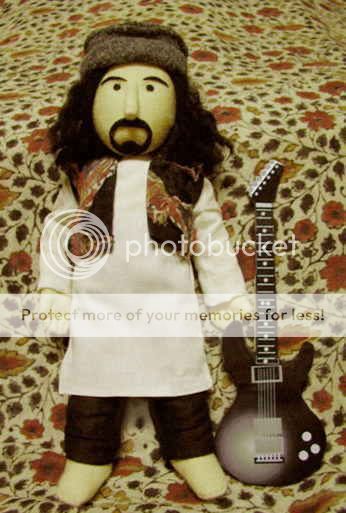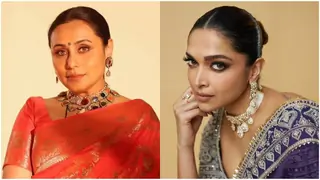Salman Ahmad — one of Lahore's greatest exports
 By Shaiba Rizwan
By Shaiba Rizwan
Lahore deserves to be called Pakistan's cultural capital. The city keeps churning out more than its fair share of musicians, actors, poets and writers. Musicians from Lahore dominate the popular music scene. One such Lahori individual is the multi talented Salman Ahmed, a pioneer of pop music.
It was Lahore that gave Pakistan the band that started the popular music revolution in the late eighties and early nineties, the Vital Signs, with three boys from University of Engineering and Technology and one from King Edward Medical College, Salman Ahmad. The band went on to change urban Pakistan's musical tastes.
Salman Ahmad's story is that of dedication and hard work. He has spent the last 14 years giving Pakistani audiences enthralling music and new trends. Whether it is singing Sufi poetry or mixing Led Zeppelin-style riffs with galloping tabla beats, Salman Ahmed can claim to be the only contemporary Pakistani musician to create a sound of his own.
It was after the success of his composition 'Saeen' that the spiritual rock/pop trend caught on. All the other artists tried to cash in on the trend by singing religiously inclined numbers (Jawad Ahmed's Rabba, Shehzad Roy's Ya Rab and Abrarul Haq's Rung Rung are a few examples).
However, success has not come easy for Salman Ahmed. He left Vital Signs at the height of its success and made Junoon, the country's only 'mega band'.
Junoon's first five or six years were marked with failures or moderate success. Their first album was a miserable flop and the audience did not like Salman's heavy rock. Their second album 'Talash' fared better and Salman had different lyrcis. Junoon were the first to sing about serious issues like politics and corruption. Certain songs in the second album almost had an anti establishment feel to them. Salman did this when all the others sang romantic or patriotic numbers.
Junoon's third album, 'Inquilab', was a smashing success and propelled Salman's band to number one. 'Jazba Junoon' that became the official Cricket World Cup 1996 song was penned and composed by Salman himself. By now, Salman had begun sporting a curious appearance; long hair, mascara-lined eyes, a strange east-meets-west wardrobe and a knack for performing at all his concerts barefoot!! The public had started noticing his exceptional guitar skills and Salman and his band members including the mercurial Ali Azmat became Pakistan's first bona fide rock stars.
Salman became more ambitious with the type of music he wanted to do and this made Junoon's next album, 'Azadi', the most unique album ever produced in Pakistan. One of the tracks in the album, 'Sayoni', took India by storm, making Junoon an overnight success in India. Salman could suddenly be seen on all Indian channels. Azadi's sales rocketed and it seemed like no one could get enough of Salman's firebrand rock. 1998 was Salman's most successful year.
However, what followed it was not so pretty. Junoon and Salman were banned in Pakistan for allegedly making anti-patriotic statements. The accusations went as far as saying that Salman and Ali Azmat had negated the two nation theory. Salman then spent a harrowing time going from office to office trying to get the ban lifted, which he did ultimately.
Since then Salman's band Junoon has become smaller in stature but he as an artist has grown. Junoon has released numerous albums after the ground breaking Azadi but none have matched its success. Their latest album 'Deewar' fell flat on its face. Salman, on the other hand, has presented himself as a man of diverse talents. In 2002, he was nominated a UN Goodwill ambassador for AIDS, sharing the forum with other celebrities like Brazilian soccer star Ronaldo. He has become an active peace campaigner and a documentary maker. His latest documentary, 'Mullahs and the Rockstar', has earned critical acclaim in America's literary circles. The documentary has been featured on many American TV stations and screened at seminars in American universities.
Salman has done Pakistanis proud with his mesmerizing guitar work. He has performed for the royal families of Norway and Jordan, has played his Sufi rock in the United Nations building, entertained thousands of fans from New York to Dhaka and his compositions have delighted listeners all over the world.
Salman recently turned forty but there is no stopping the man. He has released a solo album titled 'Infiniti' through an independent international record label. Recently, he has been actively participating in earthquake relief efforts. He is a truly talented individual who has all the attributes of a great personality. One of Lahore's greatest exports, Salman Ahmed is and will always be one of the favourite sons of this city.
































